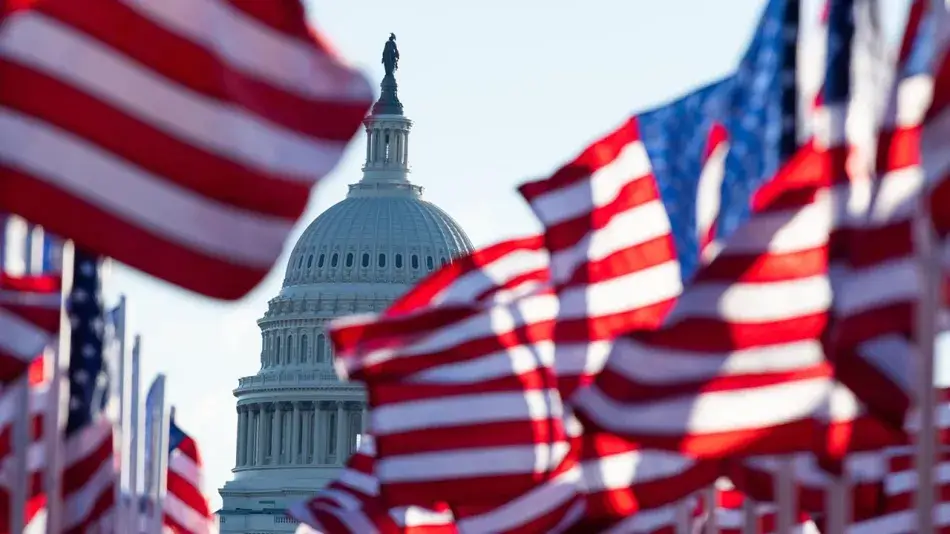With a once-in-a-generation investment in infrastructure just passed by Congress and awaiting the president’s signature, we have a unique opportunity to ensure these dollars are spent in a participatory and inclusive capacity, bringing Americans together across differences to revitalize the practice of democracy.
In addition to our roads, tunnels, and bridges, we can allocate these dollars through channels that also strengthen our civic infrastructure. Ultimately, the goal is to use federal infrastructure dollars in ways that also support our democracy.
Let’s build back our communities in a way that simultaneously improves our communities’ physical assets while strengthening our civic muscles. This dual-purpose will enable people to come together to tackle public problems with creative solutions that we desperately need in many communities, that make strides toward geographic, social, economic and other forms of equity.
Now is the moment to think about the people, places and practices of democracy. One of the challenges the federal government now faces is to ensure that these physical infrastructure dollars are distributed in a way that also supports the much-needed shoring up of the connective tissue for civic infrastructure. Successful execution of the infrastructure bill requires investing in all communities — rural, urban and suburban — as well as working to engage people across ideological and political spectrums to the people and places that can lay the foundation for a more inclusive, thriving democracy.
What is civic infrastructure and why does it matter for communities?
In its final report, “Our Common Purpose: Reinventing American Democracy for the 21st Century,” the American Academy of Arts & Sciences’ Commission on the Practice of Democratic Citizenship called for the creation of a Trust for Civic Infrastructure that would support the massive and sustained investment in local communities necessary for a resilient American democracy. The cross-partisan commission launched in 2018 to better understand and address the challenges that Americans faced in realizing their potential as active participants in self-governing communities.
According to a 2015 Aspen Institute report, “civic infrastructure” includes a “system of organizations and relationships — with the explicit goal of maximizing public participation and agency in service of better public problem-solving.” This system includes everything from the physical spaces where people gather together, to informational sources for building civic knowledge, and to digital opportunities for engaging with government and civic life.
The infrastructure bill presents the opportunity to operationalize what we have learned already works in communities to simultaneously build our physical and civic infrastructure. Three lessons with examples below illustrate how civic infrastructure in action has deepened democracy:
First, tap into people’s hyper-local expertise to effectively organize care for one another and collectively problem-solve in communities.
For example, mutual aid networks, where people in a community take responsibility for the wellbeing of their neighbors and themselves, have dramatically increased during the pandemic. The nonprofit Town Hall Project created the Mutual Aid Hub to track the mutual aid network, which grew from 50 groups in March 2020 to more than 800 across 48 states by May 2020. That number continues to grow to well over 1,000.
Second, invest in the physical spaces that support thriving, inclusive communities across the country.
For example, Reimagining the Civic Commons, a collaboration of national foundations and local civic leaders, has been working in sites across the country, reimagining civic assets to counter the trends of increasing economic segregation, social isolation and distrust. In Memphis, Tenn. the closure of fast-moving thoroughfares created new park spaces along a riverfront that allowed people to enjoy new destinations for outdoor fitness and play. These two examples build upon the work already being done to strengthen the civic infrastructure in our communities.
Finally, bridge people across geographic, ideological and partisan divides.
In Kentucky, the Kentucky Rural-Urban Exchange (RUX) is a creative leadership program designed to build confidence, grow social capital and unite Kentuckians across cultural, racial, economic and geographic divides. The program convenes 75 leaders in areas like business, health, community development and the arts to forge connections that ultimately help better serve Kentuckians. The three values of the program are people, place and partnership.
We already have examples across the country of civic infrastructure done well. While no one intervention is a panacea for the ills of American democracy today, we need to take what we have learned from these interventions to better leverage our once-in-a-generation investment. We need to continue building on the existing momentum of increasing civic power, ensuring that we not only allocate dollars equitably, but also do so through a process that facilitates the human connection that underlies our democracy. Amid significant investments for transit, rail, broadband and other public goods, we must also recognize the opportunity to improve quality of life through civic investments and processes that build a more thriving, resilient democracy.
Hollie Russon Gilman, Ph.D., is a fellow at New America and Columbia World Projects. She is the co-author of “Civic Power: Rebuilding American Democracy in an Era of Inequality” and served in the Obama administration as the White House open government and innovation adviser.
Darshan Goux, Ph.D., is the director for American Institutions, Society and the Public Good at the American Academy of Arts & Sciences.
Elizabeth Youngling, Ph.D. is the Carl & Lily Pforzheimer Foundation fellow for American Institutions, Society, and the Public Good at the American Academy of Arts & Sciences.
